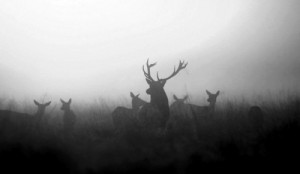 To Charles Augustus Strong
To Charles Augustus Strong
Hotel Bristol
Rome. April 17, 1928
As I have told you many times, I agree that intent precedes pure intuition, if the latter ever emerges at all: animals presumably don’t stop to study colours or sounds for their own sake: but intuition, in my sense of the word, in which it falls only on essence, must be included in their perceptions and beliefs, else the latter would be only motions. I am not clear about the degree and kind of behaviourism which is included in your use of “intent”. My own definition would make it entirely spiritual, although, like all phases of spirit, founded on an animal reaction and expressing it in a moral attitude.
The only term which is mine in origin is “animal faith”: but even here, once the phrase is printed, it is common property and you are free to turn it to any use you like. But if you cared to employ it in my sense (and I think this would help your exposition more than it would impede it) you should not extend it to dogmas. Dogmas are instances of intellectual faith: animal faith is only the confident unspoken assurance that action implies. It is not merely behaviouristic, because if it were disappointed you would feel surprise: but it is not an assertion, e.g. that the substance of wine is intrinsically red. Do you suppose that the tippler would care to defend that assertion? I think his dogma would rather be that wine would be pleasant. But his animal faith, as I use the words, involves no intellectual belief whatsoever; only the presumption that drinking is possible on this occasion. The object of animal faith is always substance, as that of intuition is always essence. Neither asserts propositions. That is why I call it faith and not opinion or judgement.
From The Letters of George Santayana: Book Four, 1928-1932. Cambridge, MA: The MIT Press, 2003.
Location of manuscript: Rockefeller Archive Center, Sleepy Hollow NY
